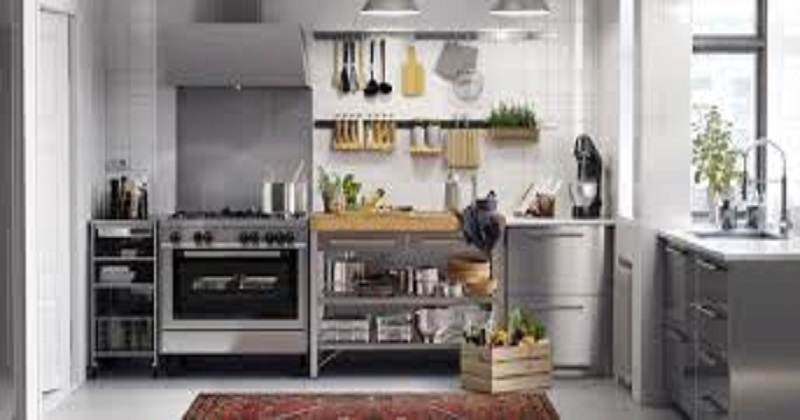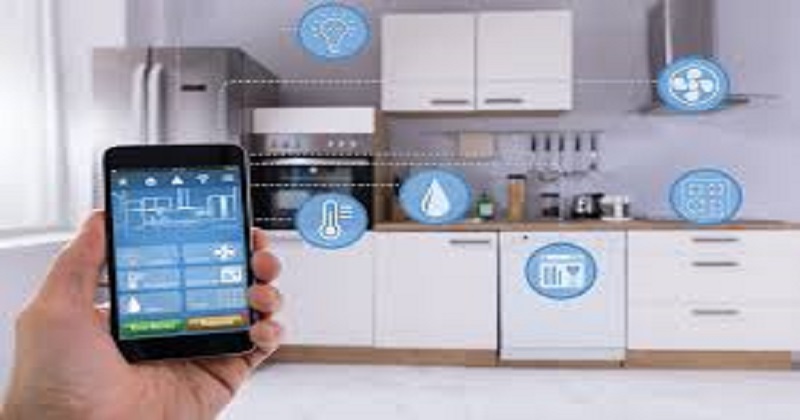
The Indian kitchen is becoming increasingly intelligent if there are no robots yet. Even though our grandmothers passed down traditional cookware to us, we have added Alexa-enabled crockpots and blenders. Modular kitchens have evolved into integrated spaces that include smart appliances. Refrigerators are no longer just for preserving food. In addition to compiling shopping lists and playing videos, these smart refrigerators can even read out the news. Astro, Amazon’s first home service robot, gives full-time surveillance, keeps an eye on the kitchen, and even gives pets their favourite treats.
Inside the hood
Smart apps (also known as i-apps) are part of this movement that collect user data (such as usage patterns and settings preferences) enabling consumers to monitor their appliances remotely; we have seen this with fully automatic washing machines, floor cleaners, sous vide appliances, wine aerators, refrigerators, ovens and broilers, exhaust systems and crackpots. 5G technology will also play a major role in kitchens of the future, enabling smart homes to be more secure while using less energy. Smart homes in India use a variety of connections, including Bluetooth, Wi-Fi, etc., which is seen as a disadvantage.
Chip manufacturers want a safer (given the fear that connected homes can be hacked) and more harmonised connection for smart devices like our crockpots and refrigerators. In India, however, 5G adoption is slow, so we may have to wait and see. However, there is optimism.

Gadgetry, galore
You could even have a GPS in your kitchen. Zelish is a kitchen assistant app created by Saakshi Jain and Rakesh Edavalath in Bengaluru that assists with everything from searching for recipes to finding ingredients, keeping track of groceries, and automating shopping lists. Users’ nutritional needs and preferences are taken into account as well. Tiny Chef, a Canadian voice-first platform that integrates technology with daily kitchen needs such as planning, shopping, and cooking, acquired the app recently. With chef Sanjeev Kapoor joining the team, it reportedly has over 1,20,000 monthly users in India now, according to its spokesperson.
The idea behind Tiny Chef, which Bahubali Shete and his wife Asha Shete launched in Canada in 2017, was to revolutionize the kitchen experience by making recipes accessible on Alexa devices and Google Home. With smart speakers connected to the app, one wouldn’t need to look at the phone while cooking. A chef could guide the user as they prepare a recipe. The user could ask Alexa to add an ingredient to the shopping cart if an ingredient was running low. Indians have reacted positively, they claim. The program includes an option for recording a family member’s voice. Hence, a treasured family recipe becomes part of a user’s private collection, which can be shared with other users. Alexa would recommend it to users with access to that recipe.
In contrast to bulky traditional tandoors, the smart tandoor is compact, light-weight, and fits easily into the scheme of a smart kitchen. Wonderchef’s ‘gas oven tandoor’ works as both a tandoor and an oven and can make anything from cakes to kebabs. Wellberg’s smart tandoor offers an auto-timer and temperature control. Since its launch in India in 2017, smart appliances such as Thermomix, which does everything from blending to cooking, chopping and kneading, have attracted more buyers. Initial enquiries came from professional chefs and hotels, but now more inquiries are coming from individuals across the country, says Yogesh Mathur, marketing manager of Pocket Kitchen LLP in Bengaluru, Thermomix dealers in India.
Read more: Missionaries and children abduction: Haiti gang asks for $17 million ransom
The new and the old
According to Chennai-based cookbook author, social worker, and food researcher Sabita Radhakrishna, not only the young are transforming their kitchens into smart ones. The price of smart appliances starts at 5,000 in India. However, many people prefer to upgrade their existing appliances to smart ones. These plugs, which can be bought online for less than a thousand rupees, automate virtually any wired home appliance. In a world where Artificial Intelligence is here to stay, even in our kitchens, we wonder where the smart movement will go next.

Post Your Comments